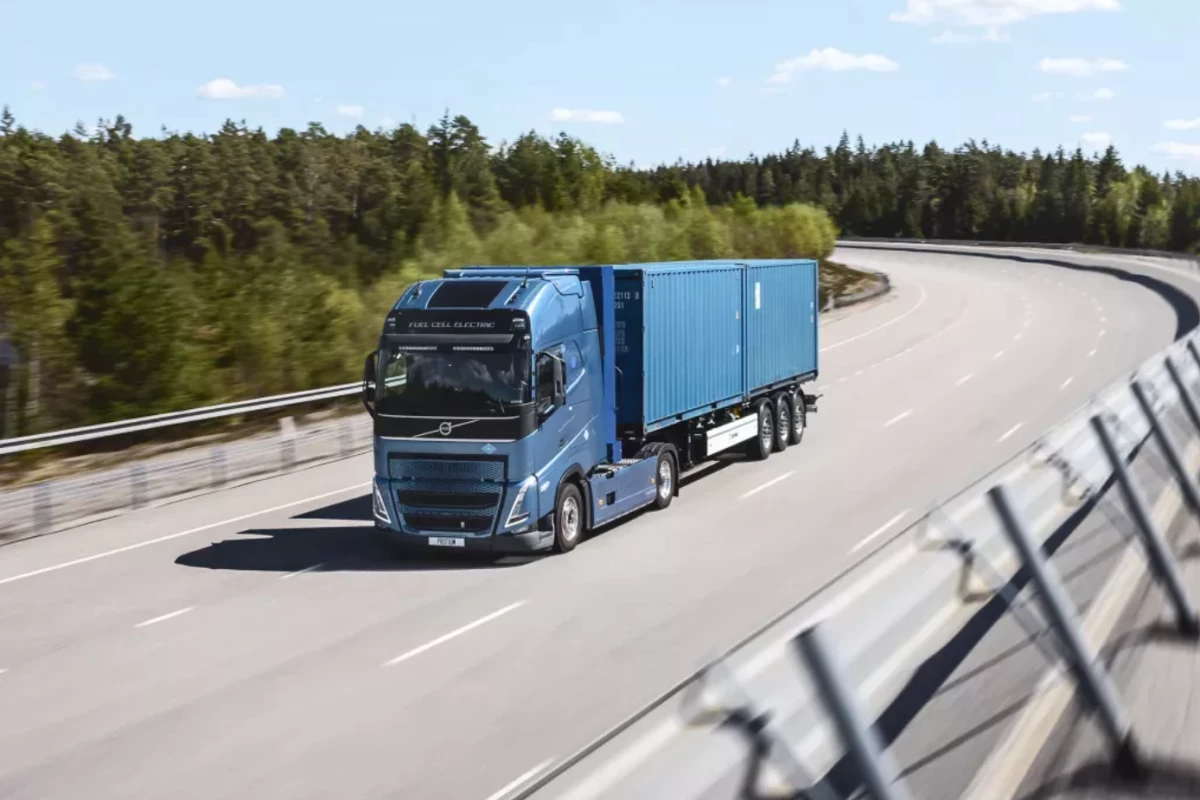Having introduced a series of battery-electric trucks over the past few years, Volvo Trucks is now expanding on its vision of a cleaner trucking future with a foray into hydrogen fuel cell powertrains. The company announced this week that it has begun putting these next-generation big rigs through their paces, with a view to introducing them to the market later this decade.
Though these are billed as Volvo's first ever fuel cell electric trucks, the company has been working on this technology for some time. Way back in 2010 it embarked on a program to extend the range of electric vehicles with a fuel cell modification that breaks gasoline down to create hydrogen gas, in turn generating electricity and sending the cars further on each charge.
In adapting this tech for use in semi-trailers, Volvo is looking to add to its stable of zero-tailpipe-emission heavy haulers that run on batteries and biogas. It says these electric trucks will have a similar range to their diesel-powered counterparts at around 1,000 km (621 miles), and will be powered by a pair of onboard hydrogen fuel cells that generate 300 kW of electricity and emit only water vapor as exhaust. They will have a refueling time of less than 15 minutes.
“We have been developing this technology for some years now, and it feels great to see the first trucks successfully running on the test track," said Roger Alm, President of Volvo Trucks. "The combination of battery electric and fuel cell electric will enable our customers to completely eliminate CO2 exhaust emissions from their trucks, no matter transport assignments."
Volvo joins some notable names in hydrogen-powered trucking, such as Toyota, Hyundai and startups like Nikola. While these have been introduced in small pilot programs around the world, we'll need to see refueling infrastructure implemented on a wider scale before they really begin to put a dent in the trucking industry's sizable carbon footprint. Volvo also points to the need for greener forms of hydrogen produced by renewable energy sources as a key consideration moving forward.
“We expect the supply of green hydrogen to increase significantly during the next couple of years, since many industries will depend on it to reduce CO2," said Alm. "However, we cannot wait to decarbonize transport, we are already running late. So, my clear message to all transport companies is to start the journey today with battery electric, biogas and the other options available. The fuel cell trucks will then be an important complement for longer and heavier transports in a few years from now."
Volvo plans to begin customer pilots for its hydrogen fuel cell trucks in the next few years, and bring them to market in the second half of this decade.
The video below offers a quick overview of the project.
Source: Volvo




